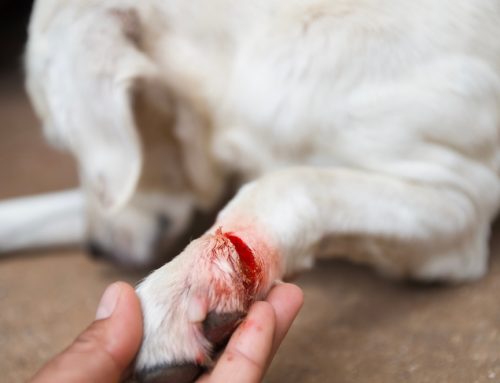Dogs and cats can’t tell us when they don’t feel well, which means that medical issues often go unnoticed for long periods. No pet owner intends to ignore their pet’s health, but the small changes leading up to a major medical issue can easily be missed. The Countryside Veterinary Hospital team recommends pet owners pay close attention to their furry pal’s behavior and physical condition so they can identify and address problems as they arise and increase the chances of successful treatment. Below, we list eight common signs that could indicate a health issue and should prompt a veterinary visit.
1: Weight changes in pets
Significant weight changes often signal an underlying health problem, such as thyroid disease, gastrointestinal (GI) disease, diabetes, cancer, heart disease, kidney disease, or endocrine disorders. Alternatively, a weight change could mean your pet’s diet needs changing. Keeping up with your pet’s routine visits can help us identify slow weight change trends over time and find the underlying cause.
2: Increased thirst, urination, or appetite in pets
Excessive thirst, urination, or appetite can signal various metabolic and endocrine disorders, including Cushing’s disease, diabetes, urinary tract disorders, or thyroid disease. Monitor your pet’s water intake and bathroom habits, and seek veterinary attention if your pet is asking for more trips outside, having accidents in the house, emptying the water bowl more frequently, or begging for extra food.
3: Decreased energy in pets
Noticeable lethargy or decreased activity levels in a normally active, playful, and social pet often indicate pain or illness. Pets in pain can also become irritable, socially withdrawn, or reluctant to eat. Low energy or activity levels can indicate many different health issues and require further investigation.
4: Recurrent vomiting or diarrhea in pets
Occasional digestive upset can be normal for many pets, but you should be suspicious of a bigger problem if your pet’s vomiting or diarrhea keeps returning with no identifiable cause, such as getting into the trash or eating a new treat. GI signs can indicate dietary intolerances or more serious underlying conditions, such as liver disease, inflammatory disorders, or cancer.
5: Hair loss in pets
Changes in a pet’s hair coat can indicate a skin problem or parasite infestation, but can also signal something more sinister. Hair thinning and loss are components of many metabolic disorders or could simply mean your pet’s diet isn’t providing the right nutrient balance for their age or lifestyle. Occasionally, hair loss is caused by a genetic condition that may require diagnosis from a biopsy.
6: Behavior changes in pets
Pets who change behavior, such as new aggression, irritability, or house soiling, are often signaling an underlying health problem. Additionally, pet owners often attribute some changes, such as confusion or uncoordinated movements, to age or senility, when neurological disorders could be the cause. Before trying to solve a new behavior issue yourself or hiring a trainer, you must rule out a physical cause, such as oral pain, arthritis, urinary tract disease, or hormonal imbalances.
7: Bad breath in pets
Some pet owners consider bad breath normal for pets, but a pet’s breath should have a neutral odor. Foul odors often indicate dental disease or originate from acid reflux or other digestive diseases. Additionally, pets with diabetes and kidney disease may have distinctive breath odors caused by abnormal substances built up in their blood—for example, ketones in diabetes and metabolic waste products in kidney disease.
8: Excessive panting in pets

Dogs pant all the time, usually to dissipate heat or when they are stressed, but dogs who begin panting more frequently could have an underlying problem with hormone balance or anemia (i.e., a decrease in red blood cells that impairs oxygen-carrying capacity).
Panting in cats isn’t normal and can signal a serious issue with their breathing or heart.
Remaining vigilant about your pet’s health and behavior can help you head off molehill problems before they become mountains. Routine visits with our Countryside Veterinary Hospital team can help identify subtle changes and reduce the impact of chronic diseases. Contact us to schedule a wellness care visit, or if you have concerns about your furry pal’s well-being.








Leave A Comment